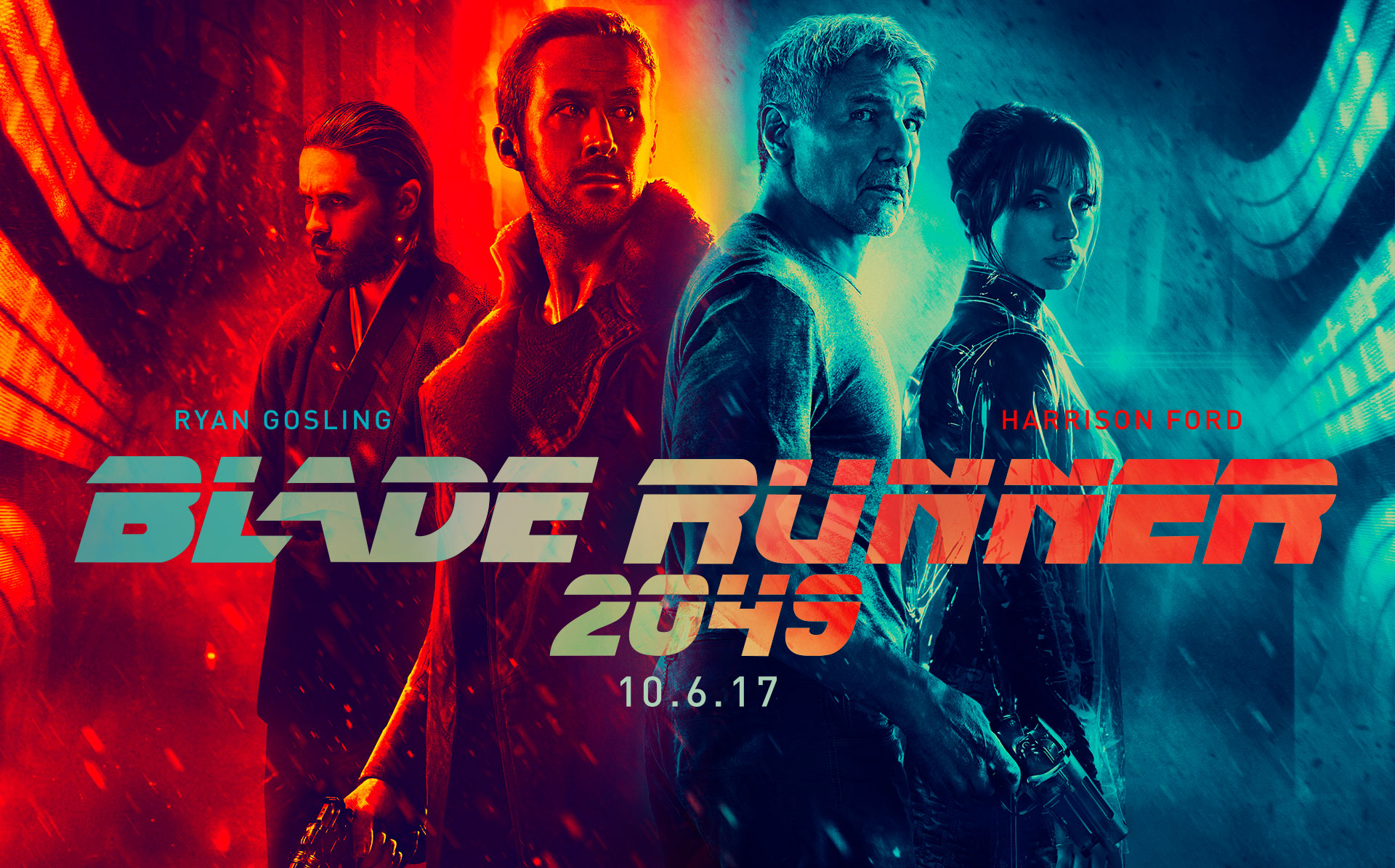I was delighted to find that Villeneuve delivered a worthy successor in Blade Runner 2049.
The cult classic Blade Runner is arguable one of the most influential films in cinema. It has inspired countless directors and movies, and is studied extensively in film schools. Making a sequel to such a film is a risky venture, but I was delighted to find that Villeneuve delivered a worthy successor in Blade Runner 2049. Villeneuve effectively captures the mood and aesthetic of Blade Runner through the stunning cinematography of Roger Deakins (hopefully this will finally earn him a much deserved Oscar for best cinematography), and evocative score of Benjamin Wallfisch and Hans Zimmer. Villaneuve follows and builds on the themes of the original film without retreading. Villaneuve extracts superb performances from all his actors with Harrison Ford giving one of his best performances ever.
Villeneuve effectively captures the mood and aesthetic of Blade Runner through the stunning cinematography of Roger Deakins (hopefully this will finally earn him a much deserved Oscar for best cinematography), and evocative score of Benjamin Wallfisch and Hans Zimmer. Villaneuve follows and builds on the themes of the original film without retreading. Villaneuve extracts superb performances from all his actors with Harrison Ford giving one of his best performances ever.
It is refreshing for a director to take long cuts, and to linger the camera on the actors and scenes, but there are places where the movie could be tightened up for a shorter run time. Blade Runner is rated R for some strong language, violence, and some unnecessary nudity.
Blade Runner 2049 is an excellent film. It is meant to be seen on the biggest screen one can find. It is as good as the original, and some could argue that it surpasses its predecessor. I recommend it to those who enjoy thoughtful and original sci-fi films.
Spoilers follow….
There are so many ways one could go in discussing the deep philosophical and thematic currents of Blade Runner 2049. What is a soul? What does it mean to be human? What does it mean to be free? These are just some of the questions raised and explored in Blade Runner. Blade Runner does not provide trite solutions to such difficult problems. It invokes without answering in full. The most compelling question raised in Blade Runner revolves around the simple question, “what is real?”

This theme is pops up constantly in the dialogue. “We’re all just looking out for something real;” “I have memories, but I can’t tell if they’re real;” “It’s real. Someone lived this;” “is he real? I don’t know, ask him;” “I know what’s real.” The noetic effects of the fall are painted all over the screen. One cannot always be sure who is human or replicant (thankfully 2049 leaves open whether Deckard is or not). K cannot even trust his own memories, because they could have been manufactured and implanted. K at one point comes to believe that he is one person, only to later find out he is not who he thinks he is.
Worldviews present descriptions about the nature of reality. They make truth claims over what is real and what is not. In different ways Blade Runner 2049 ask us what does it mean to be human, what is the soul, what is right and wrong, and what is love? It displays a deep longing for real true loving relationships. I submit that other worldviews give bad answers to these fundamental questions, but in Christianity we find the fullest, richest, most accurate picture of reality.
We find a world in which there is objective truth, goodness, and beauty. It does not hide from evil nor deny its existence, but instead confronts evil. Christianity demands justice for evils committed, but desires mercy and grace for the weak and repentant. It affirms the soul and intrinsic worth of every person’s life. It revels in the awe of the grandeur of the natural world. It longs for restoration and reconciliation. Christianity puts all its hopes in a historic fact of a resurrection. It tells us that there is more to life than just this. Christianity answers all of these questions in the person of Jesus Christ who is the way, the truth, and the life; the image of the invisible God; the radiance of God’s glory and the exact expression of his nature.
In asking the question, what is real, we express our longing to know who we can trust. K could not trust his own memories. He found more real connection with a hologram than with people. He questioned whether a dog was real or not. Blade Runner 2049 pushes us to ask who or what can we trust. Christianity answers that in Jesus we find the ultimate trustworthy one who will never lie. The enemy comes to deceive, but Jesus is the light who reveals all truth. In him we discover what is real.
“In asking the question, what is real, we express our longing to know who we can trust. The enemy comes to deceive, but Jesus is the light who reveals all truth. In him we discover what is real.”

